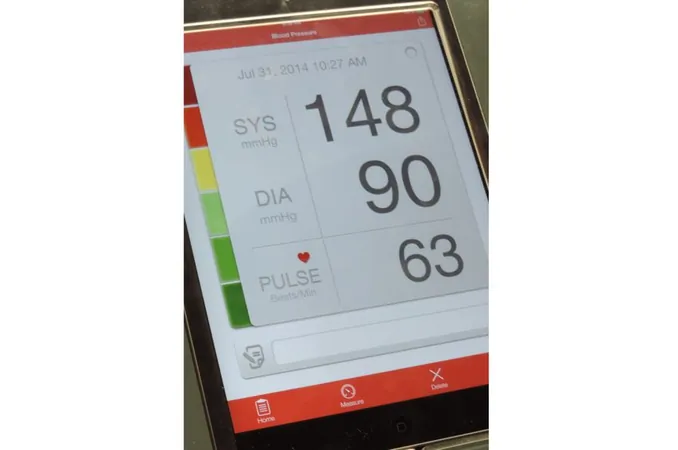
Shocking Findings: Carotid Artery Plaque Could Spell Stroke Risk for the Unaware
2025-06-03
Author: Sarah
New research reveals that seemingly harmless carotid artery plaques may pose a serious risk over time, potentially leading to life-threatening strokes. These ruptured plaques can result in dangerous blood clots in the carotid artery—our main supply line to the brain.
The Hidden Dangers of Plaque Evolution
According to Dr. Daniel Bos from Erasmus MC, University Medical Center Rotterdam, many plaques that currently show no symptoms can quickly become hazardous. Key findings suggest that calcified plaques, once thought to be relatively benign, carry a risk of internal bleeding—an event that often precipitates plaque rupture and stroke.
Revolutionary MRI Insights
Thanks to advanced MRI imaging techniques, researchers are uncovering the intricate nature of carotid plaque composition and its evolution over the years. Dr. Bos emphasizes that understanding these changes could significantly improve doctors’ ability to forecast stroke risks.
Groundbreaking Study on Patient Monitoring
In their compelling study, researchers monitored 802 patients over six years as part of the Rotterdam Study, which focuses on individuals aged 45 and older with early signs of carotid artery disease. Initial MRIs revealed the initial state of plaque composition, followed by follow-up scans after six years.
Men at Higher Risk for Complex Plaques
Researchers noted that over time, plaques became increasingly complex, developing features such as calcification, bleeding, and fatty deposits. Alarmingly, findings indicated that men were more likely than women to experience these intricate changes.
The Alarming Prediction for Aging Patients
A disturbing simulation predicted that by age 70, over half of the participants with simpler plaques would evolve into complex multicomponent plaques. This underscores an urgent need for focused research on the interplay between various plaque components, especially how calcification may lead to hemorrhaging.
The Call for Vigilance and Regular Check-Ups
Given the significant evolution of plaque over time, Dr. Bos advocates for regular monitoring of carotid health and proactive management of risk factors like blood pressure, cholesterol levels, smoking, and diabetes—especially since these dangerous changes can go unnoticed.
He warns, "Even in the absence of symptoms, early indications of plaque in your carotid arteries can quietly escalate into a serious threat over time. Regular check-ups are essential to ensure you’re not caught off guard."




 Brasil (PT)
Brasil (PT)
 Canada (EN)
Canada (EN)
 Chile (ES)
Chile (ES)
 Česko (CS)
Česko (CS)
 대한민국 (KO)
대한민국 (KO)
 España (ES)
España (ES)
 France (FR)
France (FR)
 Hong Kong (EN)
Hong Kong (EN)
 Italia (IT)
Italia (IT)
 日本 (JA)
日本 (JA)
 Magyarország (HU)
Magyarország (HU)
 Norge (NO)
Norge (NO)
 Polska (PL)
Polska (PL)
 Schweiz (DE)
Schweiz (DE)
 Singapore (EN)
Singapore (EN)
 Sverige (SV)
Sverige (SV)
 Suomi (FI)
Suomi (FI)
 Türkiye (TR)
Türkiye (TR)
 الإمارات العربية المتحدة (AR)
الإمارات العربية المتحدة (AR)